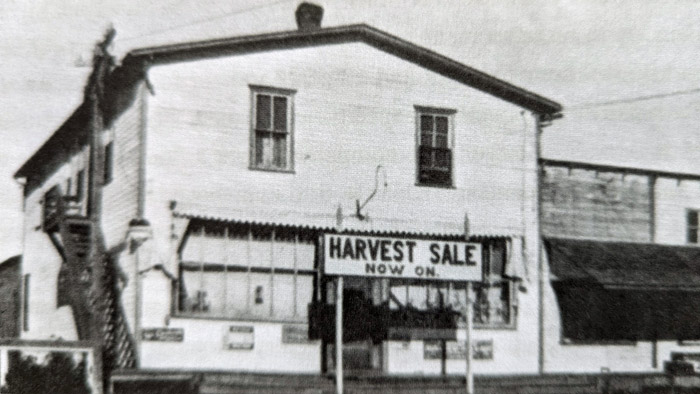Johann was a brother of Klaas Reimer of Wirtschaft 9 and 10, and he and his wife Anna travelled alongside other family members on the journey to Canada. He found the opportunities for growth in Russia stifling and was eager to make the move to a new land where opportunities seemed abundant. Their two-year-old son Abraham died on the journey, and three-year-old daughter Elisabeth died just months after arriving in Canada. Their daughter Anna, born Nov. 17, 1874, was potentially one of the first children born in Steinbach.
After settling on Wirtschaft 11, Johann purchased some oxen with his brother-in-law Peter Toews in the first spring and they were able to plough and seed a portion of their land alongside a few of Steinbach’s other settlers. A grasshopper plague wiped out most of their efforts, leaving them very reliant on neighboring established communities. Johann served in the role of schulz (mayor) in 1880-1881, the same year that his wife Anna passed away.
Becoming a widower at the age of 32, with four daughters between the ages of one and six, Johann hired a young woman to help keep house. He eventually proposed to her, and in 1882 he married Aganetha Barkman when she was just 18. By the next year they were farming 40 acres alongside caring for livestock, and in 1884, they built a new home.
Aganetha had 10 children of her own and became a trained midwife who attended to over 600 births in the community. She was also known to care for the bodies of the deceased and prepare them for burial. Johann ran a successful market garden and sold fruits and vegetables in Winnipeg, transporting his goods in his light, fast wagon. In 1916, the Reimers were the last remaining family still living on a Wirtschaft, which they sold to C.T. Loewen. Moving their house and barn to a property a mile east of the village marked the end of the pioneer era of Steinbach.
Aganetha’s son Klaas was Steinbach’s leading historian of the village’s early history. As a child, he would trade messages from the village council for candy at his uncle’s shop, K. Reimer & Sons. He served on the German library board in the 1920s, and was on the first Town of Steinbach council in 1946. Another son, Peter, had tuberculosis as a child and was unable to farm. He became the most educated of the second generation of Steinbachers, earning a bachelor’s degree from the University of Manitoba. He taught at the Chortitz school as well as became a minister, organizing the first Sunday school and church choir.




